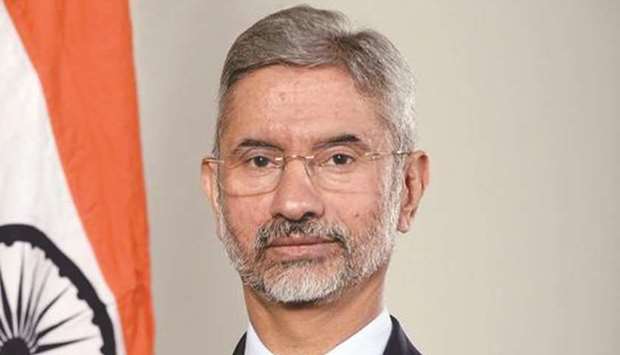With India increasing its engagements with Africa, Foreign Secretary S Jaishankar yesterday said the two sides should aim bigger and not just what they can do for each other.
“We have an established development co-operation record in Africa that ranges from power projects and dams in Sudan and Rwanda to water treatment in Tanzania and sugar factories in Ethiopia,” Jaishankar said while speaking at a “Consultation on Asia-Africa Growth Corridor: The Way Forward” organised by the Research and Information Systems (RIS) think tank and industry body CII in New Delhi.
“Our training centres are scattered across the continent and we have a long tradition of receiving students. Our approach has been to not only to teach people to fish but even encourage them to identify the fish in question,” he said. “So, today, I think we need to aim more or bigger than just what we can do for each other.”
The idea of the Asia-Africa Growth Corridor (AAGC) emerged in the joint statement issued after the annual bilateral summit between Indian Prime Narendra Modi and his Japanese counterpart Shinzo Abe in Tokyo in November 2016.
While India organises the India-Africa Forum Summit (IAFS), a vital platform to engage with Africa at regional, sub-regional, and bilateral levels, Japan holds the Tokyo International Conference on African Development (TICAD), which provides an open forum to generate innovative discussion among stakeholders participating in African development programmes.
The AAGC is designed to envisage people-centric sustainable growth strategy and will be raised on the four pillars of development and cooperation projects, quality and infrastructure, enhancing capacities and skills, and people-to-people partnership.
Jaishankar said that the AAGC should to be based on universally recognised international norms, good governance, rule of law, openness, transparency and equality.
“There must be a strong sense of ownership and that can only happen with consultative project designing, transfer of technology and encouragement of skills,” he said.
“No less important is the ensuring of financial responsibility so that there is no encouragement of unsustainable debts. Our activities must fully conform to balanced ecological and environmental protection and preservation standards and, I am compelled to add, respect for sovereignty and territorial integrity.”
Referring to the four pillars on which the AAGC will be raised, the Foreign Secretary said that India’s own approach to development cooperation and international partnerships has these very elements at its heart.
Talking about New Delhi’s diplomatic initiatives, he said that growth and connectivity were very central to India’s foreign policy-making.
“The approach of ‘Sabka saath, sabka vikas’ — that is collective action and inclusive growth — is as much a belief in international relations as it is in domestic development,” he said.
“It is already being reflected vigorously in our Neighbourhood First policy in the last three years.”
Jaishankar said that new energies and additional resources have been devoted to ensure that India’s immediate neighbours were also beneficiaries of India’s growth story. “In fact, across South Asia, what you can see now are transformational initiatives in energy, road and rail connectivity and infrastructure building,” he said.
“As they have realised, their contribution to the emergence of a regional cooperative architecture would be increasingly appreciated. Significantly, we are today working closely with a number of other international players whose approach is similar in this regard.”

Foreign Secretary S Jaishankar
